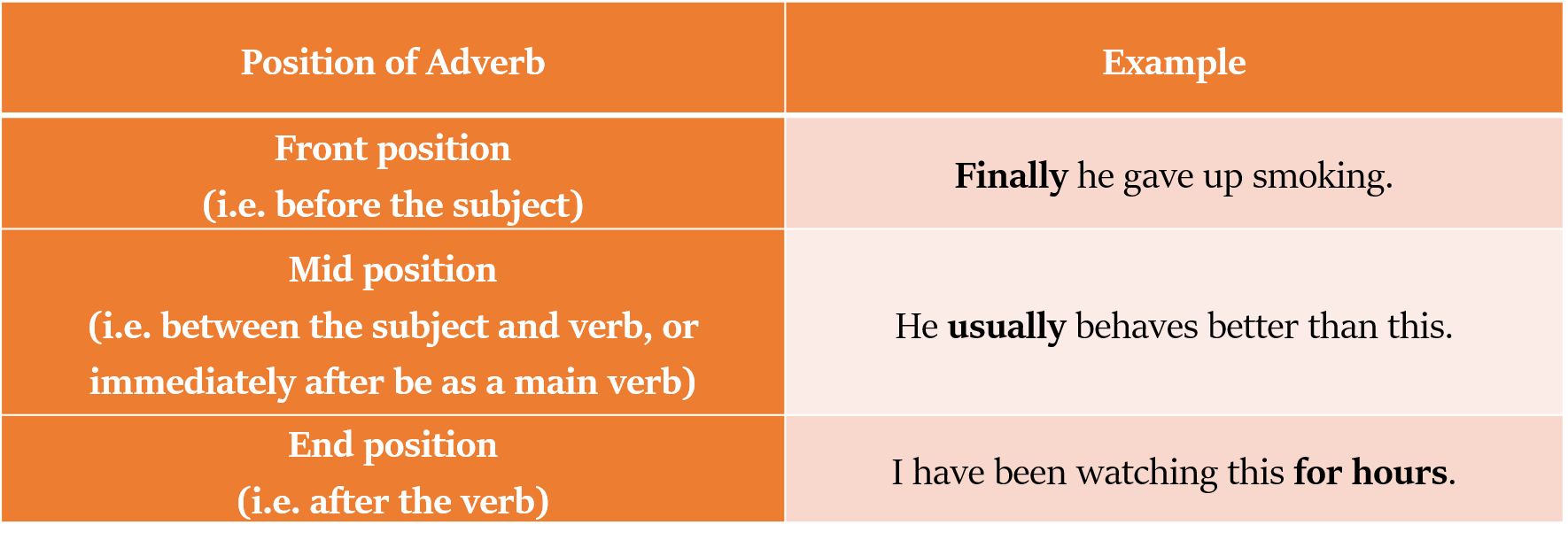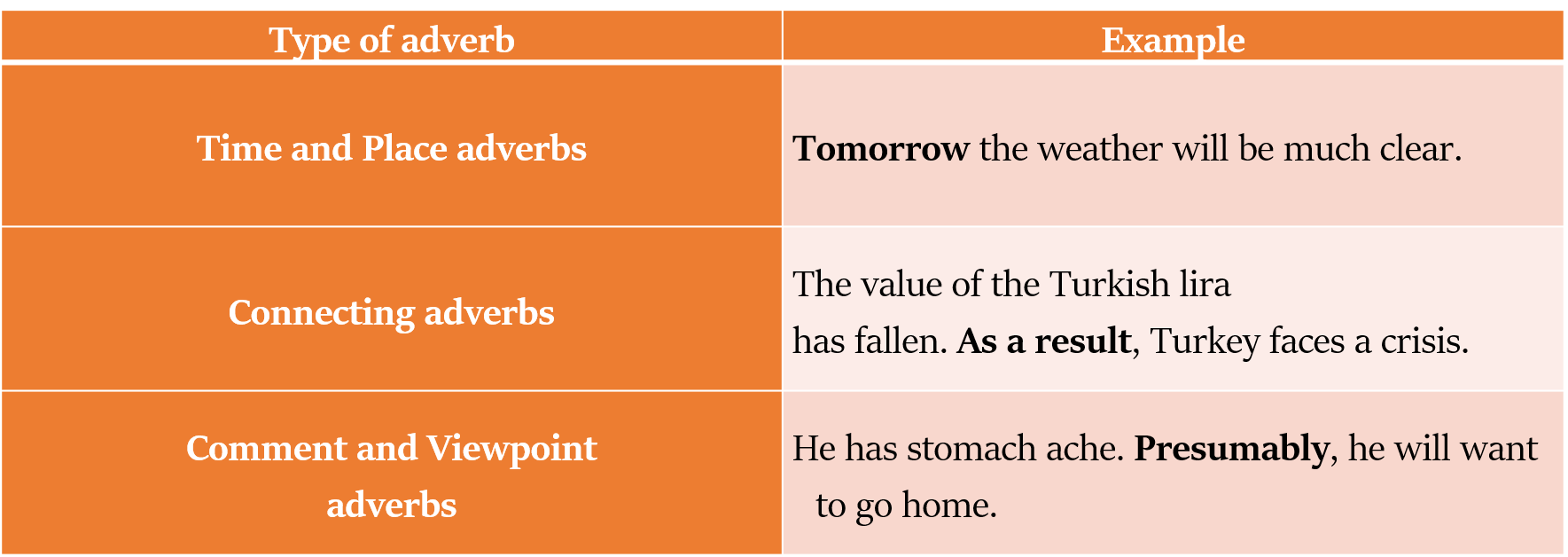Introduction to Position of Adverbs
Position of Adverbs when they modify Verbs
Adverbs which modify a verb can come in three main positions:

Front position
Concept 1
Most types of adverbs can go in front position.
In particular:

Concept 2
Interrogative adverb is always used in the beginning of a sentence.
When are you planning to join college?
Concept 3
Adverbs are also used at the beginning of a sentence:
in order to modify a complete sentence, an adverb is used at the beginning of a sentence.
Surely, this task will be done by tomorrow.In order to emphasize the adverb.
Here comes the railway minister.
Off he goes.
Mid position
Concept 1
The following types of adverb usually go in mid position:
adverbs of indefinite frequency (e.g. always, never, usually).
She always cries when she’s emotional.degree adverbs (e.g. completely, quite)
I completely lost my cool.focus adverbs (e.g. just, even)
We just wanted to help him.
Concept 2
Most adverbs of time or place don’t go in mid-position:
Aanya in August had a baby. (incorrect)
Aanya had a baby in August. (correct)
But some of them do (e.g. including already, finally, now, recently, soon, still)
I finally met Anand in a small town in Uttarakhand.
Adverbs of time are often used in mid position in journalism, i.e. while reporting:
The President yesterday announced that Article 2893 will be abolished.
End position
Concept 1
Some adverbs go in end position too.
Subject + Verb + Adverb
You danced beautifully.
Concept 2
We usually put an adverb after an object or complement:
Pattern: Subject + Verb + (Object) + Adverb
He studied briefly the problem. (incorrect)
He studied the problem briefly. (correct; problem – object; briefly - adverb)
However, if an object or complement is very long, then we often put an adverb between the verb and its object or complement (generally done in journalism while reporting)
Pattern: Subject + Verb + Adverb + (Object)
Military considered briefly the possibility of a nuclear attack. (briefly – adverb; possibility - object)
Position of Adverbs when they modify Adjectives and other Adverbs
When an adverb modifies an adjective or another adverb, the adverb usually comes before it.
The novel is very interesting. (very – adverb; interesting - adjective)
Kindly do not dictate so fast. (so – adverb; fast - adverb)
adverb ‘enough’ is always placed after the word which it modifies.
He was decent enough to ask. (decent – adjective; enough - adverb)
He sang loud enough to break the glass. (loud – adverb; enough - adverb)

Extra Books and Tools
If you prefer to learn via books, or want some good English Grammar books for reference purposes, you may read this article which enlists some of the books recommended by us.